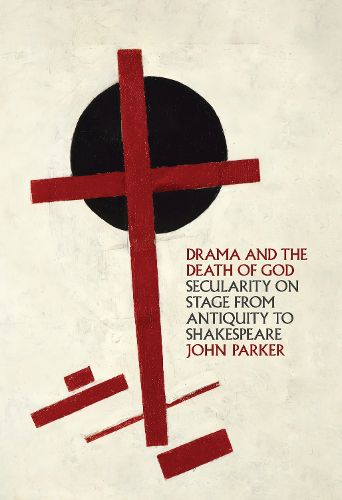Readings Newsletter
Become a Readings Member to make your shopping experience even easier.
Sign in or sign up for free!
You’re not far away from qualifying for FREE standard shipping within Australia
You’ve qualified for FREE standard shipping within Australia
The cart is loading…






In Drama and the Death of God, John Parker argues that the secularity often associated with Shakespeare inspired a variety of performances going back to antiquity. Scripture presupposes, even needs, the existence of a worldly sphere inimical to faith: known as the saeculum, this finite domain of appetite and unbelief invited both condemnation and celebration throughout medieval Christendom, as exemplified by the songs and plays of the Carmina Burana. After the tenth century, Christians routinely impersonated unbelievers in music-dramas connected to the high holidays so that they might question Biblical truths, in particular the authenticity of miracles. The church generated by this means a vision of the godless world that modernity stepped into. After the English Reformation, when Europe's first commercial theaters arose on ruined monastic estates, players continued to showcase how divine intervention could be staged by humans in the absence of God. King Lear in particular explores the ancient proposition that the saeculum holds no inherent meaning and is capable of generating only pseudo-miraculous spectacles to salve the ache of existence.
$9.00 standard shipping within Australia
FREE standard shipping within Australia for orders over $100.00
Express & International shipping calculated at checkout
In Drama and the Death of God, John Parker argues that the secularity often associated with Shakespeare inspired a variety of performances going back to antiquity. Scripture presupposes, even needs, the existence of a worldly sphere inimical to faith: known as the saeculum, this finite domain of appetite and unbelief invited both condemnation and celebration throughout medieval Christendom, as exemplified by the songs and plays of the Carmina Burana. After the tenth century, Christians routinely impersonated unbelievers in music-dramas connected to the high holidays so that they might question Biblical truths, in particular the authenticity of miracles. The church generated by this means a vision of the godless world that modernity stepped into. After the English Reformation, when Europe's first commercial theaters arose on ruined monastic estates, players continued to showcase how divine intervention could be staged by humans in the absence of God. King Lear in particular explores the ancient proposition that the saeculum holds no inherent meaning and is capable of generating only pseudo-miraculous spectacles to salve the ache of existence.